Salisbury attack suspect ‘is a Russian colonel’
Military intelligence officer Anatoliy Vladimirovich Chepiga implicated in nerve agent poisoning
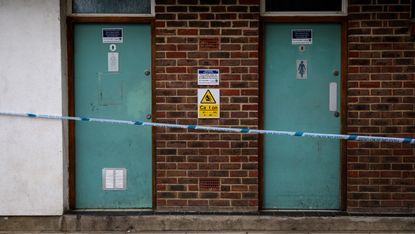
A suspect in the attempted assassination of former Russian spy Sergei Skripal in Salisbury has been identified as a military intelligence officer who was honoured by Vladimir Putin.
British security sources have confirmed that one of the two Russian men believed to be behind the novichok nerve agent attack in the Wiltshire town is a 39-year-old colonel called Anatoliy Vladimirovich Chepiga.
Earlier this month, the Crown Prosecution Service charged the two suspects with attempted murder under the names Ruslan Boshirov and Alexander Petrov.
Subscribe to The Week
Escape your echo chamber. Get the facts behind the news, plus analysis from multiple perspectives.

Sign up for The Week's Free Newsletters
From our morning news briefing to a weekly Good News Newsletter, get the best of The Week delivered directly to your inbox.
From our morning news briefing to a weekly Good News Newsletter, get the best of The Week delivered directly to your inbox.
But investigative journalism website Bellingcat has discovered that “Boshirov” is actually Chepiga - a claim that two other security sources have confirmed as accurate, according to Reuters.
The veteran officer “served in conflicts in Chechnya and Ukraine and was given Russia's highest state award - Hero of the Russian Federation - in 2014” by decree of President Putin, Sky News reports.
In interviews with Russian media, Chepiga and his alleged accomplice denied any nefarious motives for their visit to Salisbury in March, claiming they were there as tourists.
However, the unmasking of Chepiga “eliminates any remaining doubts” that they were “Russian officers operating on a clandestine government mission”, says Bellingcat.
The true identity of “Petrov” has yet to be revealed publicly, but The Daily Telegraph reports that it is known to security services and that “he was travelling under his real first name and had only changed his surname to an alias”.
As well as Skripal, the novichok attack almost killed the former double agent’s daughter, Yulia, and police officer Nick Bailey.
Nearly four months later, Amesbury couple Charlie Rowley and Dawn Sturgess fell ill after coming into contact with a perfume bottle that police believe was used to spray novichok on Skripal’s front door. Sturgess, 44, later died from exposure to the deadly substance.
Create an account with the same email registered to your subscription to unlock access.
Sign up for Today's Best Articles in your inbox
A free daily email with the biggest news stories of the day – and the best features from TheWeek.com
-
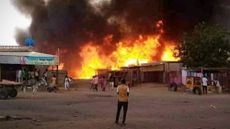 Sudan on brink of collapse after a year of war
Sudan on brink of collapse after a year of warSpeed Read 18 million people face famine as the country continues its bloody downward spiral
By Peter Weber, The Week US Published
-
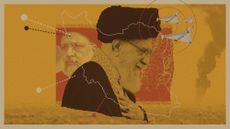 How powerful is Iran?
How powerful is Iran?Today's big question Islamic republic is facing domestic dissent and 'economic peril' but has a vast military, dangerous allies and a nuclear threat
By Harriet Marsden, The Week UK Published
-
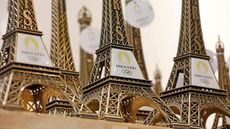 Olympics 2024: is Paris ready to party?
Olympics 2024: is Paris ready to party?Talking Point Build-up to this summer's Games 'marred' by rows over national identity, security and pollution
By The Week UK Published
-
 What we know about the Copenhagen mall shooting
What we know about the Copenhagen mall shootingSpeed Read Lone gunman had mental health issues and not thought to have terror motive, police say
By The Week Staff Published
-
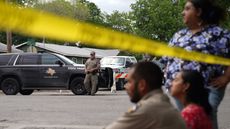 Texas school shooting: parents turn anger on police
Texas school shooting: parents turn anger on policeSpeed Read Officers had to be urged to enter building where gunman killed 21 people
By The Week Staff Published
-
 DJ Tim Westwood denies multiple sexual misconduct allegations
DJ Tim Westwood denies multiple sexual misconduct allegationsSpeed Read At least seven women accuse the radio and TV presenter of predatory behaviour dating back three decades
By The Week Staff Published
-
 What happened to Katie Kenyon?
What happened to Katie Kenyon?Speed Read Man charged as police search for missing 33-year-old last seen getting into van
By The Week Staff Last updated
-
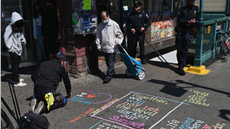 Brooklyn subway shooting: exploring New York’s ‘steep decline in law and order’
Brooklyn subway shooting: exploring New York’s ‘steep decline in law and order’Speed Read Last week, a gunman set off smoke bombs and opened fire on a rush-hour train in the city
By The Week Staff Last updated
-
 How the Capitol attack investigation is splitting the Republicans
How the Capitol attack investigation is splitting the RepublicansSpeed Read Vote to censure two Republican representatives has revealed deep divisions within party
By The Week Staff Published
-
 Is sentencing a Nazi sympathiser to read Shakespeare an appropriate punishment?
Is sentencing a Nazi sympathiser to read Shakespeare an appropriate punishment?Speed Read Judge seemed to think introducing student ‘to high culture’ would ‘magically make him a better person’ said The Daily Telegraph
By The Week Staff Published
-
 Sarah Everard’s murder: a national reckoning?
Sarah Everard’s murder: a national reckoning?Speed Read Wayne Couzen’s guilty plea doesn’t ‘tidy away the reality of sexual violence’
By The Week Staff Last updated